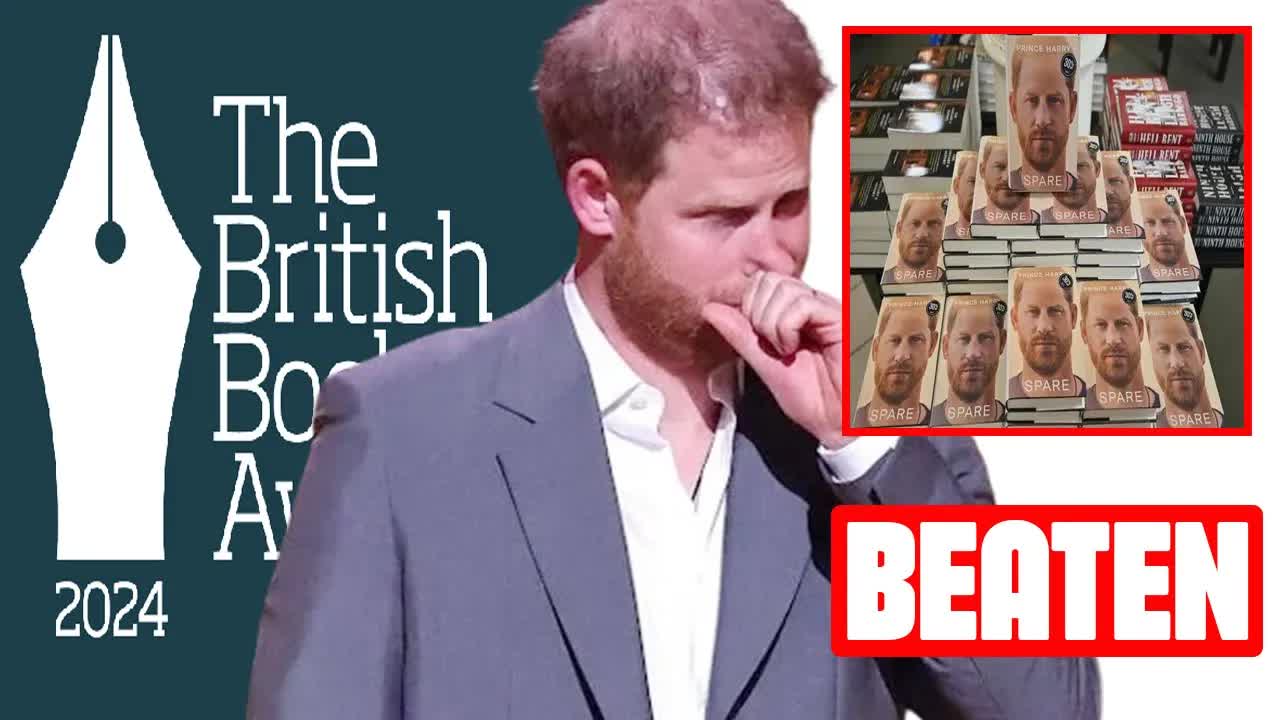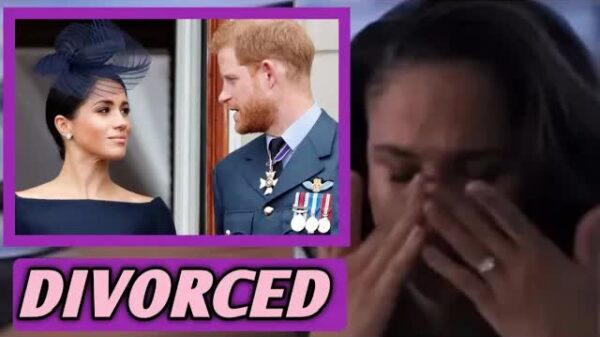In a surprising turn of events, Prince Harry‘s much-discussed memoir, “Spare,” faced a complete shutout at this year’s British Book Awards.
Despite its high-profile release and the buzz it generated, the book failed to clinch a single award in any of the categories it was nominated for.
The ceremony took place at the prestigious Grosvenor House in London, where the competition proved to be fierce, with Harry being overshadowed by a children’s author, a puzzle book, and even the memoirs of a former politician.
Released in January, “Spare” aimed to provide an intimate look into Harry’s life, touching on personal topics such as his first s**ual experience, substance use, and family disagreements.
However, it ultimately fell short, losing the coveted Book of the Year award to “Myrtle,” a puzzle book by G.T.
Carver that captivated audiences with its collection of mysteries to solve.
In the non-fiction narrative category, Harry was outperformed by Rory Stewart’s “Politics on the Edge,” a book that likely resonated more with voters than Harry’s controversial storytelling.
Adding to the disappointment, Harry also missed out on the Author of the Year title, which went to Catherine Rundle, a celebrated children’s writer known for her fantasy series, “Impossible Creatures.”
It seems that Harry’s attempts to share his truth didn’t translate into accolades, despite “Spare” selling an impressive 706,978 copies across various formats.
The judging panel for this year’s awards included a diverse group of authors, illustrators, and celebrities, such as Adrian Childs and Lorraine Kelly.
Their decisions raised eyebrows, especially considering the content of Harry’s memoir.
Critics have pointed out that the book, which includes some rather sensational admissions, seemed more like a series of grievances than a genuine narrative.
The fact that Harry’s memoir lost in the non-fiction category to a political book has stirred skepticism among fans and critics alike.
Many are questioning how a work that delves into the complexities of royal life could be bested by a political commentary.
Some have gone so far as to label Harry’s narrative as “fiction,” suggesting that his complaints about family dynamics didn’t resonate with readers or judges.
As the night unfolded without Harry in attendance, observers speculated on his absence.
Was he hoping for a royal treatment elsewhere?
The optics of missing such a significant event, especially after the hype surrounding his memoir, seemed off.
Booksellers reported that “Spare” sold over 700,000 copies, yet the anticipated paperback release that would further boost sales never materialized.
Many readers initially purchased the book hoping for an authentic glimpse into the royal family, only to find a narrative filled with grievances.
This disconnect between expectation and reality might explain why the memoir struggled to earn recognition at the awards.
Public sentiment appears to lean toward viewing the nominations as mere publicity stunts rather than genuine acknowledgments of literary merit.
The reactions from royal fans following the awards were swift and biting.
Some expressed shame over purchasing the memoir, while others mocked its lack of wins, suggesting Harry should have received accolades in categories like “Obvious Grudge” or “Childish Tantrum.”
The humor in these comments highlights a broader sentiment that many feel about Harry’s public persona and his recent literary endeavors.
Overall, the snubbing at the British Book Awards serves as a stark reminder that celebrity status does not always guarantee literary success.
As Harry navigates his post-royal life, the question remains: can he pivot from personal narratives to something that resonates more deeply with a wider audience?










